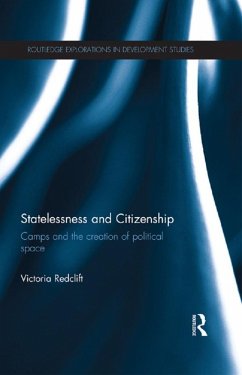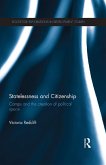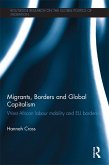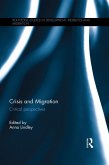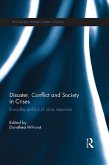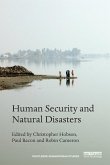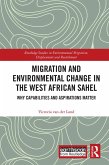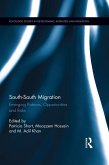What does it mean to be a citizen? In depth research with a stateless population in Bangladesh has revealed that, despite liberal theory's reductive vision, the limits of political community are not set in stone. The Urdu-speaking population in Bangladesh exemplify some of the key problems facing uprooted populations and their experience provides insights into the long term unintended consequences of major historical events. Set in a site of camp and non-camp based displacement, it illustrates the nuances of political identity and lived spaces of statelessness that Western political theory has too long hidden from view. Using Bangladesh as a case study, Statelessness and Citizenship: Camps and the creation of political space argues that the crude binary oppositions of statelessness and citizenship are no longer relevant. Access to and understandings of citizenship are not just jurally but socially, spatially and temporally produced.Unpicking Agamben's distinction between 'political beings' and 'bare life', the book considers experiences of citizenship through the camp as a social form. The camps of Bangladesh do not function as bounded physical or conceptual spaces in which denationalized groups are altogether divorced from the polity. Instead, citizenship is claimed at the level of everyday life, as the moments in which formal status is transgressed. Moreover, once in possession of 'formal status' internal borders within the nation-state render 'rights-bearing citizens' effectively 'stateless', and the experience of 'citizens' is very often equally uneven. While 'statelessness' may function as a cold instrument of exclusion, certainly, it is neither fixed nor static; just as citizenship is neither as stable nor benign as the dichotomy would suggest. Using these insights, the book develops the concept of 'political space' - an analysis of the way history and space inform the identities and political subjectivity available to people. In doing so, it provides an analytic approach of relevance to wider problems of displacement, citizenship and ethnic relations.Shortlisted for this year's BSA Philip Abrams Memorial Prize.
Dieser Download kann aus rechtlichen Gründen nur mit Rechnungsadresse in A, B, BG, CY, CZ, D, DK, EW, E, FIN, F, GR, HR, H, IRL, I, LT, L, LR, M, NL, PL, P, R, S, SLO, SK ausgeliefert werden.

